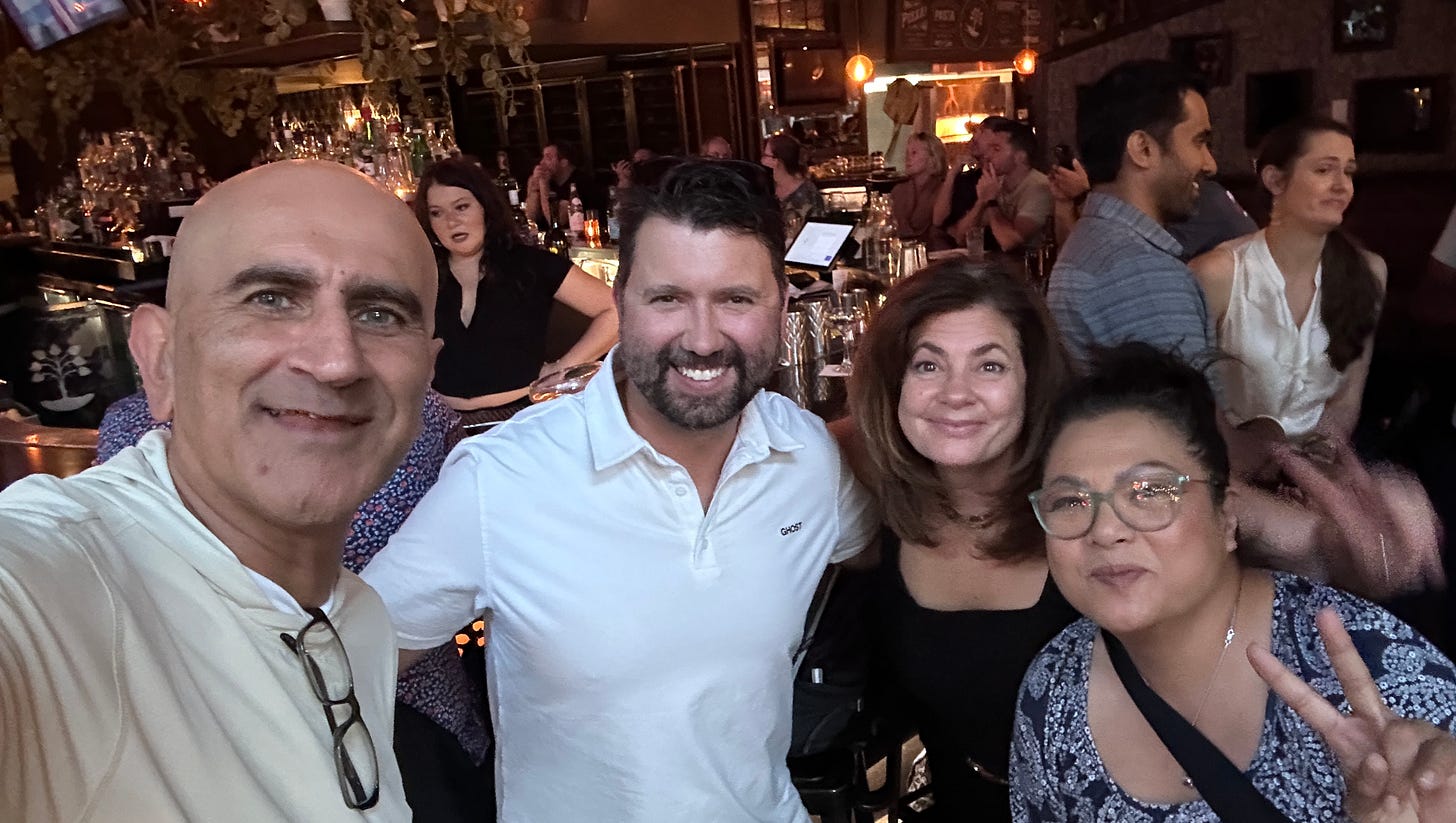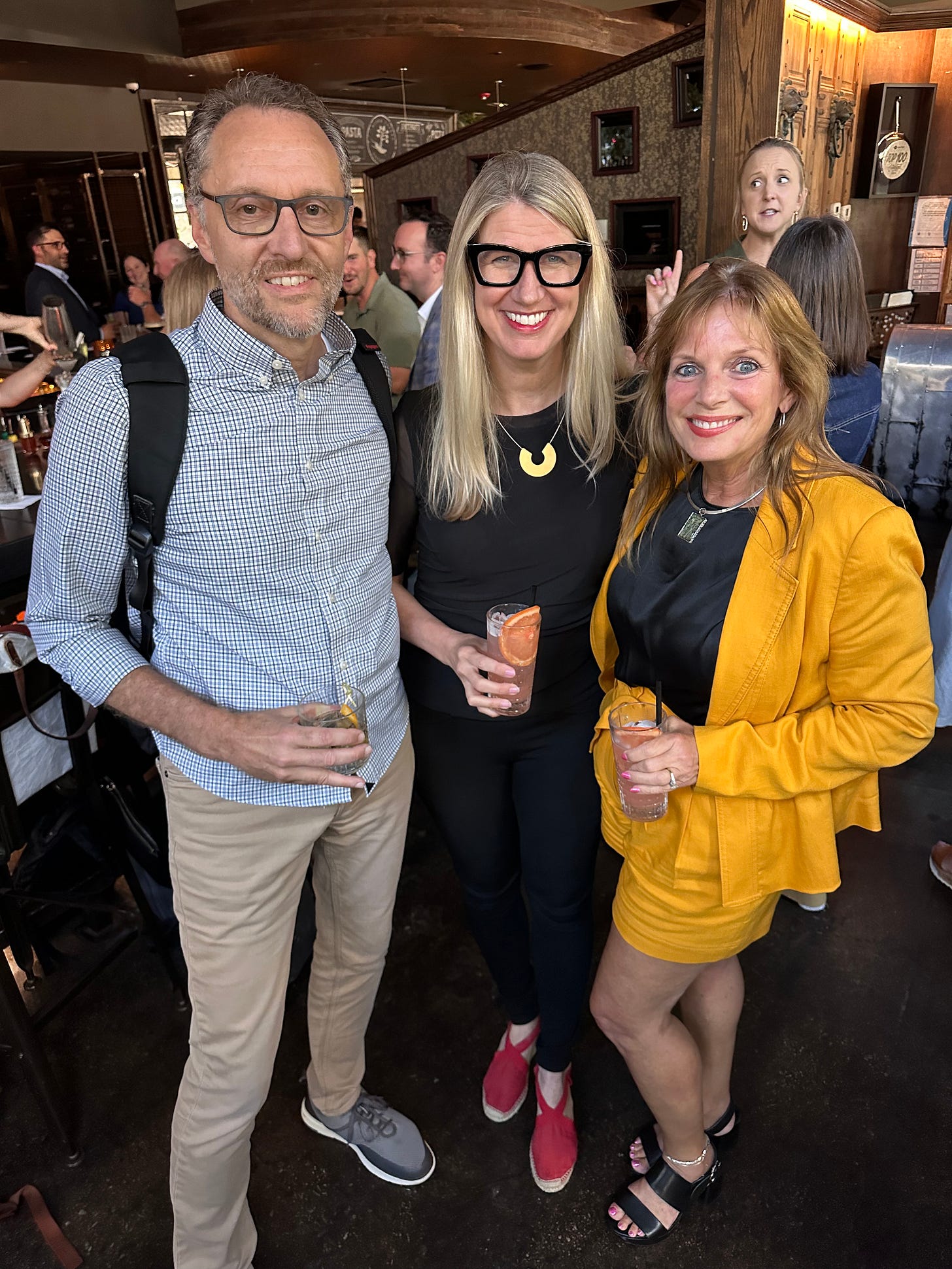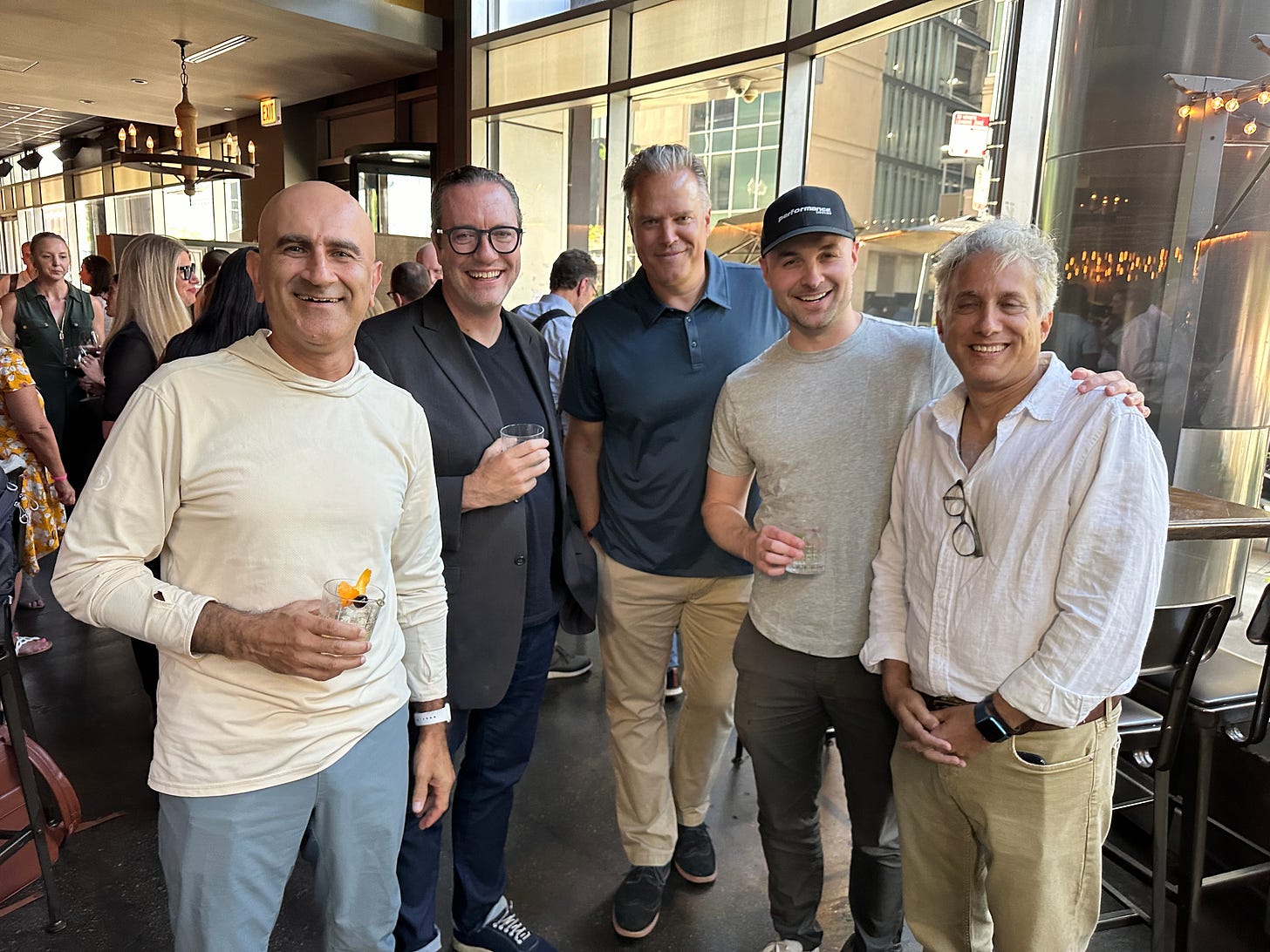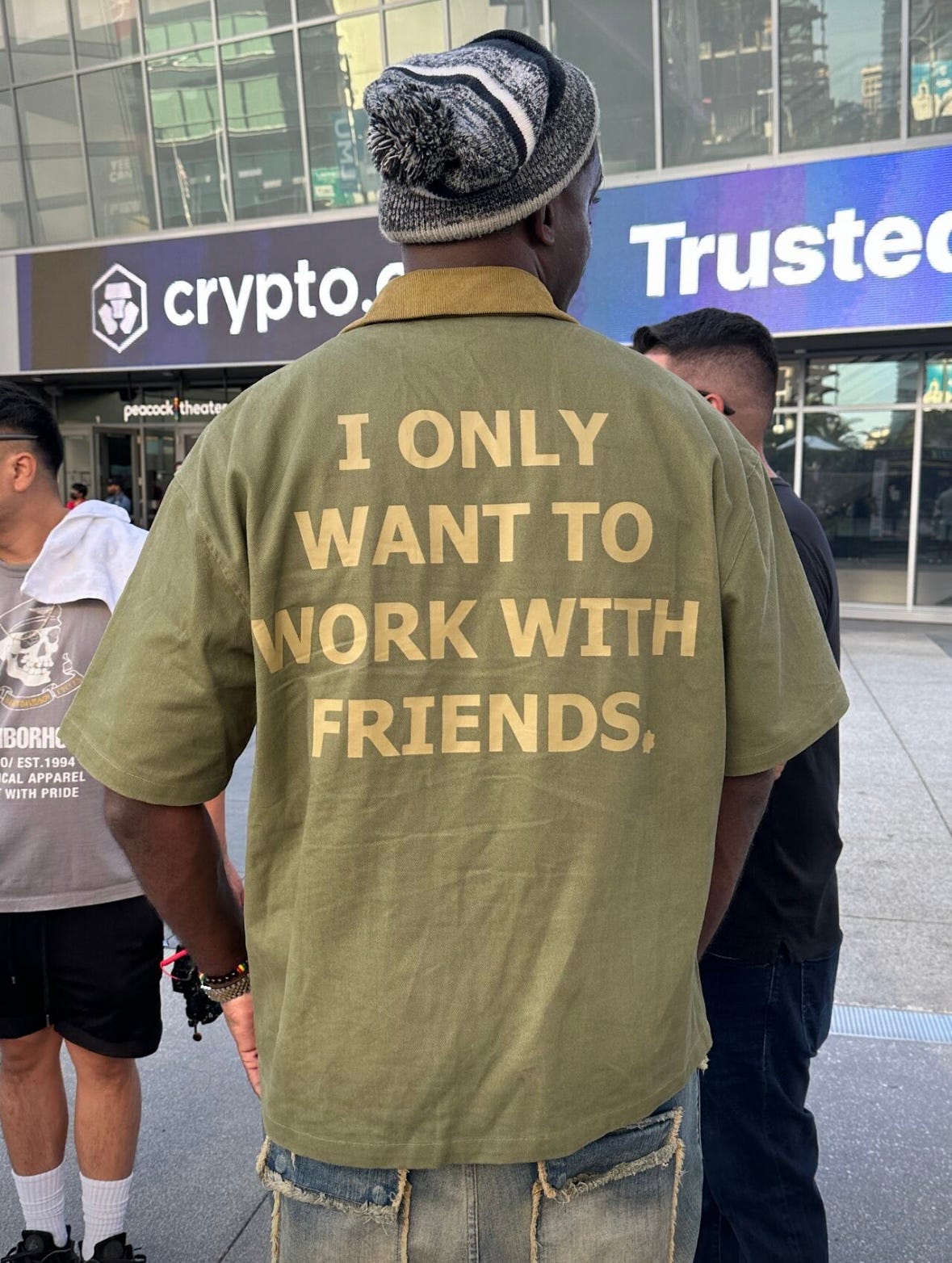11 Standards for a Community of "Amazing People"
Whether it's social or professional
Last week, I had the joy of being at a casual happy hour with many longtime friends and colleagues through my work at The Junto Institute. Some were current or past clients, some were mentors and instructors in our former leadership development program, and some were participants or graduates of that program.
Before Covid hit, our business was based in Chicago and all our sessions were held in-person. Like many companies, we went fully virtual after 2020. On the personal side, I decided to live a nomadic life so I could literally take my work with me. But one of the serious costs of that transition was not being able to see and be with all those “amazing” humans.
I use that word because I mean it. It was a word that many in our community also used back in the day. If they didn’t, they’d use good or wonderful or incredible or special. The sentiment was shared across the community and, after last week’s happy hour, it also came to life in the comments section of my LinkedIn post about the event.
And so the event alone inspired a yearning for that vibe as part of my daily life today. Put another way, I realized that “amazing people” was a standard I wanted to set. Sure, I had access to many such folks in the Chicago area but the problem was that they lived there and I didn’t.
I recently decided to make Boulder, Colorado my new home and since doing so, I’ve been trying to build a new community both socially and professionally. But the happy hour - and those subsequent comments - have given me not just the inspiration and fuel to make it happen but also the formula: to set standards for this new community I want to build.
WHO ARE THESE PEOPLE?
The question I was facing was how do you find, vet, and build relationships with good, amazing, wonderful, incredible, or special people? What distinguishes them from everyone else?
To my pleasant surprise, I recognized that I already had many such standards because my co-founder and I used them years ago in building what became the Junto community. The only difference was that I wasn’t conscious of the fact that I had these standards nor was I using that language.
So I spent a few days after the happy hour reflecting on what our team used to talk about when it came to clients, mentors and instructors, and participants. I even had a phone call with my co-founder a couple days ago to get her insights.
What were the attributes we were looking for? How did we vet them to ensure they were a good fit? How did we want to treat them? How did we want them to treat us and each other?
STANDARDS FOR AMAZING PEOPLE
I was able to come up with 11 such standards, some that were explicit, others that weren’t. And I know that there may be another 11 or more that I uncover with time. But for now, here are the ones I’ve recognized and will be using for my new community-building efforts, both socially and professionally:
Two degrees. This was possibly the most important standard I set from the time I envisioned what The Junto Institute could be. I believe that every single person in our community was either a first degree connection of mine, or a second degree connection introduced by someone I knew. From the get-go, the idea of a potentially “amazing” person was covered by this. We all know that word-of-mouth and referrals are the best way to not only build a business but also to build new relationships. This is one that I’m going to lean into in a hard way going forward.
“Ya gotta wanna.” This was a mantra my co-founder and I used to say when it came to seeking clients. We had a robust, intensive leadership development program built on the foundation of learning emotional intelligence. I concluded early on that we couldn’t focus on trying to sell it but rather finding people who wanted to buy it. Potential clients had to want to grow as leaders and humans. Interestingly, it also applied to our mentors and instructors. Those who showed a motivation to help, show up, and give back had the “gotta wanna.” This might be the second most important standard I’m going to set for my new community.
Follow standards. We started The Junto Institute with operational standards for our program, and each year, we added to them. In our second year, someone from the team was in every session that was held. Therefore, we could personally witness how well a community member followed those standards. Examples included: everyone speaks once before anyone speaks twice; silence/put away phones; share experiences rather than give advice; start on time, end on time; use “I” statements rather than “you” statements. If someone struggled with following these standards (ie: consistently “should”ing on others or showing up late or checking their phone), we had to intervene and remind them of the standards and, if the behavior continued, they simply weren’t invited back.
Can commit. This comes early in a relationship and, for our business, it was another essential. We ran an intensive, long-term program that required specific hours which we knew in advance. There were a number of people we passed on and who passed on us simply because they couldn’t commit. Today, I find myself following this standard by asking both social and professional connections if they have mutual interest in getting to know one another. If there’s any hesitation in their response, I see that as a possible inability to commit, knowing that some people can be surprised by such a question.
Showing up. Needless to say, this is another essential, and is the execution of “can commit.” We struggled with a handful of Junto community members who made the commitment but then couldn’t keep it. And either they voluntarily withdrew or we didn’t continue the relationship. I continue to live to this standard: if someone doesn’t show up, literally, and I don’t hear from them with a request to reschedule, it’s likely not going to be a relationship I want to pursue. My time is just as valuable to me as theirs is to them.
Relevant experience. Our former Junto program was targeted to founders and executives of early-stage companies, often first-time leaders. Therefore, we set a standard early on that mentors and instructors must have significant operating experience…seasoned executives who had walked in the shoes of our clients. In fact, in our first year, we went through every one of their LinkedIn profiles to see when they started their careers and/or graduated college. We realized that the “least seasoned” executive had 15 years of experience. From that moment on, that became a standard. And it gave us the ability to say that every one of our mentors and instructors had “been there, done that.”
Sees the win/win. The healthiest relationships go both ways: each party gives something of value and each party gets something of value. Back in the day, we looked for people who understood this. For Junto mentors and instructors, they knew that they were giving their time and wisdom. But those who valued that they were getting access to a network, an opportunity to learn from others, and the “feel good” that comes with giving back were the ones we wanted to keep.
Relational vs. transactional. This goes in line with win/win but is a bit more nuanced. When we sensed that a potential community member was explicitly seeking something transactional in return for their contribution, it was a warning sign. This occurred mostly with mentors and instructors and, in a bit of a surprise the first time it happened, it also occurred with a couple of our clients. Beyond the value they were receiving through our program in exchange for our fees, I learned that some were using Junto explicitly to generate business. And when I further heard how that made other community members feel, I realized these clients weren’t the right fit for us. Instead, we embraced those people and companies where it was evident that they saw value in the relationships, not only with us but others in the community.
Mutual appreciation. This standard emerged as our relationships developed over time. Just like best friends or romantic partners tend to appreciate one another for a variety of reasons, we did the same with virtually all our community members. Through the course of our program, and during three special events we held each year, our team expressed its appreciation and regard for them. But when some people went out of their way to express their regard for our business and people, we paid special attention and, candidly, were biased towards keeping them in the community.
Emotional resonance/enthusiasm. This is an extension of mutual regard. We were very careful in vetting our community members, and were proud to share who they were. We trumpeted them at our events, in our newsletters, on social media, and in our sessions. And when they told us that it was an “honor” to be “picked” for the community (even some clients!) we could sense an emotional resonance that went both ways. Truth be told, when this happened we went the extra mile with those relationships. This enthusiasm was another dynamic I felt at the happy hour; so many people told me how much they missed regular Junto sessions and events, that they remain proud of their affiliation with us, or that they look forward to these occasional gatherings.
Ability to listen and ask questions. This is huge in an educational program that is based on mentorship and, I believe, for any healthy relationship. It was one of the ways I personally vetted most of our mentors and instructors. If, during our initial prospecting conversations, I got a sense that the candidate struggled with listening, it was a red flag. Taking this one step further, I learned first-hand that the ones who asked the most questions were the best listeners. I know…a shocker. Today, this is a standard I have for virtually anyone I meet, personally or professionally. If there isn’t a fairly equal exchange of questions asked and a capacity to demonstrate active listening, it’s likely not a relationship worth pursuing for me.
Ultimately, what all these standards required was a great deal of hard work from our team. Our integrity was tested at times because we needed someone who could fit a particular niche we were seeking, or that we were short a certain number of mentors/instructors, or that we had access to someone with a high profile that could raise the visibility of our program.
Truth be told, we occasionally stumbled and invited such people into the community even though they demonstrated an inability or unwillingness to meet at least one of our standards. And in virtually every case, as you might imagine, we learned our lesson: we could not compromise our standards.
GOING FORWARD
I’m going to continue this exercise of setting standards for my new community in Colorado. While I’m inspired by the ones above, it’s important that I keep my heart and mind open to new standards that I’m not aware of or weren’t relevant in the past. After all, it’s a very different world we’re living in today. My business is very different than it was back then. I’m a different person, as are most people. And I have far more clarity than ever before.
Therefore, I’d love to hear any community standards you or your organization have, are experienced with from your past, plan to set in the future, or recommend for others…including me.




